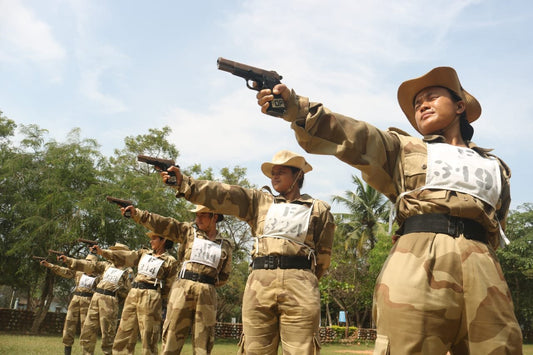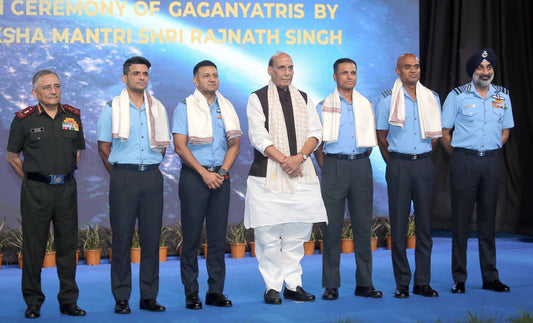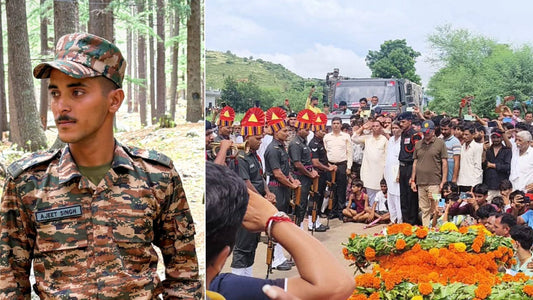IAS vs IPS Officer: Who Has More Power?

The Indian Administrative Service (IAS) and Indian Police Service (IPS) are two premier All India Services recruited through the Union Public Service Commission's Civil Services Examination. IAS officers primarily handle administrative governance, including policy formulation, implementation, and district-level management, acting as key links between the government and the public.
In contrast, IPS officers focus on law enforcement, maintaining public order, crime prevention, and investigation, commanding police forces at state and central levels. Both services contribute to national development but operate in distinct spheres, with IAS emphasizing broad administration and IPS prioritizing security.
Power Dynamics Explained
Power in the Indian bureaucracy is hierarchical and multifaceted. IAS officers often hold superior positions in district administration; for instance, a District Magistrate (IAS) oversees all departments, including law and order, and can direct the Superintendent of Police (IPS). This gives IAS broader decision-making authority over governance, resource allocation, and development.
IPS powers are more specialized, excelling in areas like counter-terrorism, VIP security, and intelligence, but they typically report to IAS officers in administrative matters. While IAS is seen as more influential in policy and overall bureaucracy, IPS can have greater on-ground impact during crises, reflecting a complementary rather than competitive dynamic.
Also Read: IAS vs Army Officer: Who Has More Power?
Career and Perks Comparison
Both services offer similar entry-level salaries (around INR 56,100 per month under the 7th Pay Commission), but IAS officers may reach higher apex pay scales (up to INR 2,50,000) compared to IPS (up to INR 2,25,000), with additional allowances for IAS in senior roles. Training differs: IAS at Lal Bahadur Shastri National Academy of Administration for administrative skills, and IPS at Sardar Vallabhbhai Patel National Police Academy for policing expertise. Career progression leads to top posts like Cabinet Secretary (IAS-exclusive) or Director General of Police (IPS), with opportunities for deputation to central agencies.
IAS vs IPS Officers: A Comprehensive Analysis of Power, Roles, and Influence in India's Bureaucracy
India's civil services form the backbone of governance, with the Indian Administrative Service (IAS) and Indian Police Service (IPS) standing as two of its most prestigious pillars. Both are All India Services, recruited through the rigorous Union Public Service Commission (UPSC) Civil Services Examination, and play critical roles in nation-building.
However, the perennial debate who holds more power? stems from their distinct mandates: IAS focuses on broad administrative and policy-driven governance, while IPS centers on law enforcement and security.

This article delves deeply into their roles, responsibilities, powers, hierarchies, career trajectories, salaries, and the nuanced power dynamics, drawing on official profiles, expert analyses, and historical context to provide a balanced view. While IAS officers are often perceived as more powerful due to their overarching administrative control, the reality is interdependent, with each service excelling in its domain.
Also Read: IAS vs Army Officer: Who Earns More Money?
Historical Evolution and Recruitment
The IAS and IPS trace their origins to the colonial era, evolving from the Indian Civil Service (ICS) and Imperial Police post-independence in 1947-1948. The IAS replaced the ICS to handle administrative functions, while the IPS succeeded the Imperial Police to manage law enforcement. Recruitment is merit-based via the UPSC exam, with candidates allocated to services based on rank and preference.
Direct recruits (about two-thirds) come from the exam, while the rest are promoted from state services. Cadre allocation ensures national integration, dividing states into zones, with officers serving in allotted cadres or on central deputation. Training is specialized: IAS officers undergo a two-year program at the Lal Bahadur Shastri National Academy of Administration (LBSNAA) in Mussoorie, emphasizing policy, management, and governance.
IPS training at the Sardar Vallabhbhai Patel National Police Academy (SVPNPA) in Hyderabad focuses on law enforcement, investigation, and physical fitness, culminating in a master's degree in criminal justice. This foundational difference sets the tone for their careers: IAS for versatile administration, IPS for operational policing.
Roles and Responsibilities: Complementary Yet Distinct
IAS officers are the architects of governance, responsible for policy formulation, implementation, and oversight at district, state, and central levels. Their duties include:
- Collecting revenue and acting as revenue court officials.
- Maintaining law and order through coordination (not direct enforcement).
- Implementing government schemes in sectors like health, education, and infrastructure.
- Crisis management, such as during natural disasters or elections, where they serve as returning officers.
- Advising ministers and representing India internationally in negotiations.
In field postings, like Sub-Divisional Magistrate or District Collector, they manage public grievances, development projects, and inter-departmental coordination. At higher levels, as Secretaries, they shape national policies in ministries like Finance or Home.
IPS officers, conversely, are the guardians of security, with responsibilities centered on:
- Preventing and investigating crimes, including cybercrime and terrorism.
- Maintaining public peace, handling riots, and ensuring VIP security.
- Leading intelligence gathering and border policing.
- Enforcing socio-economic laws, disaster management, and anti-corruption efforts.
- Commanding state police and central forces like CBI, BSF, or NSG.
As Superintendents of Police (SP) or Directors General, they modernize forces, train personnel, and coordinate with other agencies. Their work demands physical resilience and quick decision-making in high-stakes scenarios.
While IAS roles offer diversity across sectors, IPS is more action-oriented, with direct public interaction in safety matters. This complementarity is evident in districts, where IAS oversees holistic administration, and IPS handles policing specifics.

Power Comparison: Administrative Breadth vs. Specialized Authority
The core question—who has more power?—lacks a binary answer but tilts toward IAS in most analyses. IAS officers possess broader decision-making powers, influencing governance, resource allocation, and policy across departments. For example, as District Magistrates, they control land management, revenue, and even direct police actions during emergencies, placing them above IPS counterparts like SPs. At senior levels, IAS-exclusive posts like Cabinet Secretary (the bureaucracy's apex) grant them oversight over all services, including IPS-led agencies.
IPS power is potent but domain-specific: they command armed forces, access intelligence, and lead operations against threats like insurgency. In security crises, an IPS officer's authority can eclipse administrative roles, as seen in counter-terrorism operations. However, they often report to IAS officers in administrative hierarchies, limiting their broader influence. Experts note that while IPS impacts public safety directly, IAS's role in policymaking and ministerial advising provides greater long-term leverage.
Debates on platforms like Quora and Reddit highlight controversies: some argue IPS's "visible power" (e.g., arrests, raids) feels more immediate, but others point to IAS's systemic control. Corruption scandals, such as recent IAS suspensions in Uttar Pradesh, underscore that power can be misused in both services, eroding public trust.
Also Read: IPS Officer vs Army Officer - Who is more Powerful?
Hierarchy, Career Progression, and Salaries
Both services follow structured hierarchies, with promotions based on seniority, performance, and merit. IAS progression starts as Assistant Collector, advancing to District Magistrate, Secretary, and culminates in Chief Secretary (state) or Cabinet Secretary (center). IPS begins as Assistant Superintendent, rising to SP, Inspector General, and Director General of Police. Deputations allow cross-service exposure, such as IPS heading CBI or IAS in security ministries.
Salaries are governed by the 7th Pay Commission, starting at INR 56,100 for both, but IAS reaches higher (INR 2,50,000 at apex) due to additional allowances. Perks include housing, transport, and security, with IPS often receiving uniforms and field allowances.
The following table compares key aspects:
| Aspect | IAS Officers | IPS Officers |
|---|---|---|
| Entry Rank | Assistant Collector cum Sub-Divisional Magistrate | Assistant Superintendent of Police (ASP) |
| Key Mid-Level Roles | District Magistrate/Collector, Joint Secretary | Superintendent of Police (SP), Deputy Inspector General (DIG) |
| Apex Positions | Cabinet Secretary, Chief Secretary | Director General of Police (DGP), Director of CBI or IB |
| Salary Range | INR 56,100 (entry) to INR 2,50,000 (apex), plus higher allowances | INR 56,100 (entry) to INR 2,25,000 (apex), with field-specific perks |
| Power Focus | Broad administrative, policy, and governance | Specialized in law enforcement, security, and investigation |
| Training Academy | Lal Bahadur Shastri National Academy of Administration | Sardar Vallabhbhai Patel National Police Academy |
| Uniform | No uniform; formal attire | Distinctive police uniform |
This table illustrates IAS's broader scope versus IPS's focused expertise.
Challenges, Reforms, and Societal Impact
Both services face challenges like political interference, frequent transfers, and corruption. Reforms, such as the Supreme Court's directive against oral instructions, aim to enhance accountability. Societally, IAS drives development (e.g., rural schemes), while IPS ensures stability (e.g., during elections or pandemics). Aspirants should choose based on passion: IAS for governance enthusiasts, IPS for those drawn to action and justice.
In conclusion, while IAS holds more comprehensive power in India's administrative framework, IPS's role is indispensable for security. The true strength lies in their synergy, fostering effective governance amid evolving challenges.



















